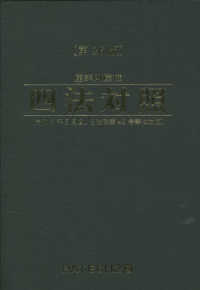- ホーム
- > 洋書
- > ドイツ書
- > Social Sciences, Jurisprudence & Economy
- > Politics, Society, Work
- > political science
Full Description
Since the end of bipolarism, the concept of asymmetric warfare, and of asymmetric conflict in general, has been increasingly applied with regard to armed forces activities and tasks. This book presents the findings of comparative empirical research conducted in selected military units by a group of distinguished experts on military organization, who hail from the eight participating countries: Bulgaria, Cameroon, Denmark, Finland, Italy, Lithuania, the Philippines and Spain.
It discusses remarks made by military leaders with extensive experience in the field regarding current doctrines on military leadership and their applicability in the field, as well as proposals and suggestions for new directions.
"It is a complex relation, always based on respect and politeness, but often with mismatched interests." (Army Colonel).
"It makes you realize that there is a cultural gap. You must firstly understand who you are going to relate to, and the culture of these people, and then try to establish a certain kind of relationship. Often the platoon commander states his objective and must try to establish a relationship, contact with the village chief." (Army Lieutenant, Platoon Commander).
"[In Afghanistan] We had meals with the locals, sometimes the food didn't taste good, but you had to eat it if you wanted to be welcomed back again" (Army Captain, Company Commander).
These are just some of the many voices stemming from the ground in diverse international asymmetric conflict theatres (in Iraq, in Kosovo, in Afghanistan...), comments by military officers, commanders at different hierarchical levels, asked to reflect on their experiences as military leaders in crisis response operations.
Military professionals, and military leaders in particular, perceive themselves as facing ambiguous situations that require an update in their professional training, and new skills to confront unexpected and unpredictable factors. Drawing on lived experiences, the book offers insights into what a new kind of leadership means when leaders have to cope with diverse and unclear missions. It also addresses leadership styles and behaviours, as well as individual adaptive behaviours on the part of military leaders, with special reference to middle and middle-high level ranks, such as captains, majors and colonels.
Given its scope, the book will appeal not only to military professionals and military affairs scholars and experts, but also to readers interested in gaining a better understanding of the challenges that international expeditionary units are facing in crisis areas around the globe.
Contents
1. What does Leadership Mean?- 2. Tendencies of a Asymmetric Warfare Leadership.- 3. Changes in Leadership Styles.- 4. The Flexible Soldier in a Multicultural World.- 5. Training and Specific Training.- 6. The Military Interaction with Local Leaders.- 7. Relationships in Missions.- 8. Rules of Engagement.








